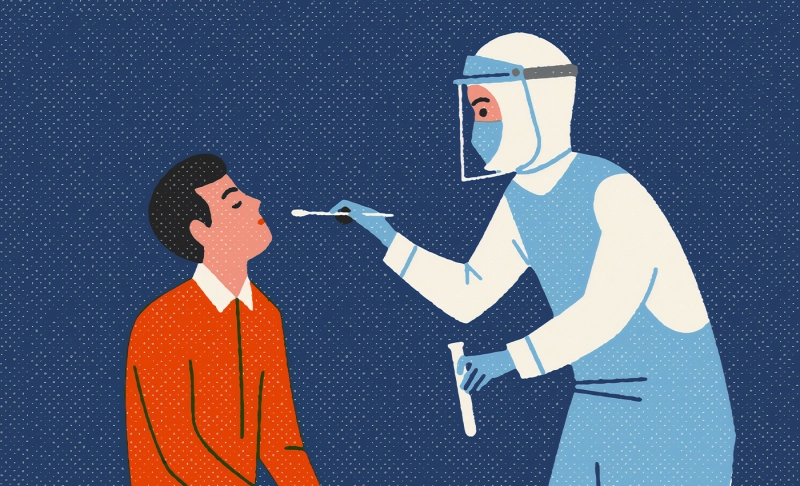By: Sunil Kumar
November 18 2021

The PCR test is not a nasal vaccine. It is used to detect active COVID-19 infection by swabbing one's nose or throat.
The PCR test is not a nasal vaccine. It is used to detect active COVID-19 infection by swabbing one's nose or throat.According to Mayo Clinic, the Polymerase Chain Reaction (PCR) test for COVID-19 is a molecular test that examines one's upper respiratory specimens for genetic material (ribonucleic acid or RNA) of COVID-19. Small amounts of RNA from specimens are amplified into deoxyribonucleic acid (DNA) that is duplicated until COVID-19 is detectable if present, using the PCR technique. The PCR test successfully detects even the smallest amount of coronavirus genetic material in a sample due to the amplifying property, making it a highly sensitive and accurate test. It is the gold standard for diagnosing SARS–CoV–2, with accuracy nearing 100 percent. The U.S. Centers for Disease Control and Prevention (CDC) developed two laboratory tests to identify SARS-CoV-2, which causes COVID-19. In February 2020, the CDC launched Real-Time RT-PCR Diagnostic Panel that accurately detects COVID-19 in respiratory specimens. The CDC Influenza SARS-CoV-2 (Flu SC2) Multiplex Assay, which allows public health laboratories to execute three tests in a single reaction well, was launched in July 2020. According to the Indian Department of Biotechnology, Bharat Biotech's intranasal vaccine is the first nasal vaccination to get regulatory permission for Phase 2 studies. It is the first COVID-19 vaccine to go through human clinical trials in India as of August 2021. The COVID-19 pandemic has given rise to a lot of potentially dangerous misinformation. For reliable advice on COVID-19, including symptoms, prevention, and available treatment, please refer to the World Health Organization or your national healthcare authority.